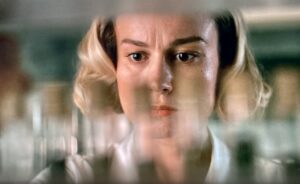3/5 Stars
Frank Herbert’s seminal 1965 sci-fi novel “Dune” is soon to be returning to the silver screen this December after its film debut in 1984. This time, helmed by acclaimed director Denis Villeneuve, who directed Blade Runner, 2049, Sicario and the Arrival, and featuring an all-star cast, including Timotheée Chalamet, Zendaya, Oscar Isaac, Dave Bautista, Javier Bardem and Jason Moamoa, this film appears likely to gain considerably more traction that other adaptations could not.
The initial 1984 release told the story of a wandering messiah of Arrakis, and was shot by a young, eccentric director, David Lynch, fresh off of box office success with 1980s historical drama, “Elephant Man.” Much like Villeneuve, Lynch had selected a cast that was popular but perhaps not the most talented given an enormous production budget, which he failed to recoup. Due to COVID-19’s impact on theater attendance numbers, the 2020 make of “Dune” is set for a rolling release date. New and old fans alike can expect this new iteration to be a breath of new life, and an opportunity to look back on Lynch’s attempt to bring movie magic to the world of Dune.
The 1984 film opens with a rather strange voiceover performed by the daughter of the Emperor of the Universe, as she explains intergalactic trade and relations, which are based around a highly sought-after spice located exclusively on the planet Arrakis. It seems like an odd choice, as her character is so promptly dismissed and has next to nothing to do with the rest of the film. We are then introduced to Paul Atreides, our protagonist, son of Duke Leo, the ruler of House Atreides, and next to assume control of the Arrakis mining operations. Eager to travel to the new world and leave home, Atreides is prepped for assuming the additional responsibilities by his mentors, including officer Gurney Halleck, played by the notable Sir Patrick Stewart.
Shortly afterwards he is given a mysterious test that upon passing, unknowingly begins his quest to fulfill an ancient prophecy and save the spice-rich desert planet. On the other side are the depraved rulers of House Harkonen, the mortal foes of House Atreides. They are sour at having been kicked off of Arrakis by the Emperor, and biding their time until Duke Leo touches down on the planet, they pull a trap on Atreides, resulting in his exile. From there, Atreides must make connections with the planet’s native people, in order to fulfill the ancient prophecy in its entirety.
Truth be told, “Dune” is not a great film for a litany of reasons, and at a runtime of two hours and 17 minutes, it can feel like a bit of a slog to get through the whole thing in one sitting. For one, there are far too many voice-overs. These break the age-old principle of “show, don’t tell” when it comes to filmmaking, and they are likely due to the sheer amount of information that the viewer needs to understand the scene. Herbert’s “Dune” is in no way short on content, but by adding in this sort of lifeless regurgitation of information, it only serves to muddy the water in terms of clarity as it feels like a different character gets to play the role of narrator in every scene.
The props and set can feel quite chintzy at times, and this really shouldn’t be the case with a $40 million production budget. While the production company might not be expected to be on par with Lucasfilm’s Industrial Light and Magic, it also shouldn’t look like it was filmed at the same time and with the same budget as “Star Wars: A New Hope,” which was filmed 10 years earlier. On a more positive note, there are many great models of the spaceships House Atreides uses and some eye-catching costume design, but in most areas it simply feels dated. The score is a bit of an odd one; Recorded by rock band Toto, it doesn’t seem to fit with the grandiosity of the tale and shows its age, and it instead drones on in the background. The performances are fine, with standouts being Kenneth McMillan’s portrayal of the vile Baron Harkonnen and Kyle MacLachlan’s regal Paul Atreides.
In many ways, “Dune” (1984) was a springboard for those involved, many involved going on to have shining film careers. MacLachlan would go on to star in Lynch’s “Lauded Blue Velvet” and TV hit “Twin Peaks.” Sean Young, who plays Atreides’ love interest, would land a role in the Ridley Scott directed “Blade Runner,” and Lynch himself would move on to better films such as “Wild at Heart” and “Mulholland Drive.” Looking forward to the future, with any luck, Villeneuve will be able to craft a film that provides some much needed justice to Herbert’s literary vision in his 2020 release.











